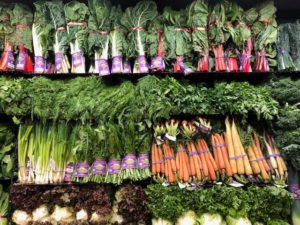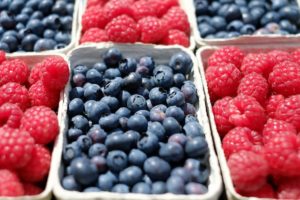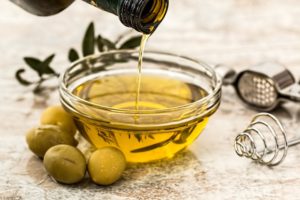Are you suffering from chronic lower back pain?

Did your doctor diagnose it as bulging discs or herniated discs?
Want to know more about pain management?
I know you are worried but I want to assure you that you are not the first one fighting this problem and there is a very effective solution regarding your diagnosis.
Research shows that UK-based doctors have found that herniated discs are very common among people aged 30-50 years, and males suffer more than females.[1]
Nothing to worry about.
You don’t need to suffer in silence.
Beside customised exercises, all you need is to follow a customised nutritious diet that is rich in antioxidant and anti-inflammatory foods and work closely with a sports nutritionist specialised in the herniated disc recovery programme.
By the way,
If you would like to learn why my clients describe this unique back rehab transformation methodology as the most successful, predictable and comprehensive back transformation programme in the UK here are just a few case studies like Hayley, Franco, Elizabeth Tiffany, Jan, Michaela, W.T. Police officer, Emma, Huw or Dr Christian NHS.
The Scientific Role of Nutrition in Herniated Disc Recovery
Does research shows that customised nutrition play any role in herniated disc recovery? [2]
Yes, of course!
Let me explain to you.
You are well aware of the first and most common symptom of disc herniation.
Aren’t you?
That is pain.
Research shows that sometimes we feel pain because of inflammation levels.[3]
Herniated disc degeneration is accelerated by inflammation.
So, if disc degeneration and inflammation is one of the causes of your pain – when inflammation is reduced, pain automatically reduces.
Our food has many nutrients that help reduce inflammation and help in herniated disc recovery.
Customised nutrition plays an important positive role in herniated discs degenetation. [4]
Always remember that some of the most powerful anti-inflammatory is not found in pharmacy stores, but in the grocery store!
At the same time, you should remember that many foods increase inflammation in the body.
The simplest example is animal products, processed food products and refined oils which are rich in omega-6 fatty acids and will increase your inflammatory markers.[2]
Avoid such foods!
Selected Anti-inflammatory Foods for Herniated Disc Recovery
I will chalk out a generalised diet plan and give you guidance how to recover from the pain and inflammation associated with the herniated discs.
However, speaking generally we may also consider some anti-inflammatory foods like vegetables and fruits which are proven to reduce inflammation and aid in rapid recovery.
Here are the best examples of nutrients that you should include in your diet.
Algae Rich In Omega-3 Fatty Acids
Omega-3 fatty acids are ‘’healthy fat’’.
And they are essential too!
They are good for your bones and also for other vital organs like the heart, eyes, and skin.
The three most important omega-3 fatty acids are ALA (alpha-linolenic acid), DHA (Docosahexaenoic acid), and EPA (Eicosapentaenoic acid).
All these healthy fatty acids play important role in our body to reduce inflammation and thus help improve herniated disc recovery.
Want to know the dietary source of Omega 3?
Only fish?
No, not at all.
I understand that most people prefer healthier vegetable sources of Omega-3 and here are some :
Several algae are rich in Omega 3 fatty acids.[5]
For example:
- Seaweed
- Nori
- Spirulina
- Chlorella
Algae oil is a recent innovation in food technology.
Algal oils are entirely vegetarian and are produced in tightly controlled, closed facilities and never come into contact with oceanic contaminants.
Talk to your London nutritionist, sit back, and relax!
Munch On Nuts And Seeds
Several nuts like walnuts, pecans, and chestnuts have some of the highest contents of antioxidants you will come across.[6]
Antioxidants help reduce oxidative stress in our body and also reduce associated inflammation.
Nuts like almonds and walnuts are rich sources of omega-3 fatty acids.
Remember, nuts also contain vitamins, minerals, and amino acids that help in the normal functioning of bones and muscles.
Have them as a mid-meal snack!
Eat Plenty Of Dark Green Leafy Veggies
 Include dark green leafy vegetables in your diet such as spinach, kale, and collards.
Include dark green leafy vegetables in your diet such as spinach, kale, and collards.
They are the powerhouses of polyphenolic antioxidants and powerful anti-inflammatory nutrients and also keep your gut healthy![7]
Many plants also contain Omega 3 like Nigella sativa (Black cumin) and Coriandrum sativum (Coriander).
Berries
Berries like:
- strawberries,
- raspberries,
- blackberries,
- blueberries, and
- gooseberries
Are a rich sources of antioxidant vitamins.
They also contain anthocyanins that help reduce inflammation and fight free radicles.
Prefer to eat whole fresh berries, and avoid fruit juices as far as possible!
Olive Oil And Avocado Oil

Research have proved that olive oil is an anti-oxidant, anti-inflammatory food, and is useful in the recovery of spinal cord-related health problems.[8]
This is because, the olive has oleuropein aglycone, a potent polyphenol!
But…
Did you know that the combination of olive oil and vitamin D prevents bone loss and helps to build strength? [9]
You can also opt for highly nutritious virgin avocado oil. [9]
Many studies have proved that avocado oil is rich in healthy essential fatty acids and also helps in the absorption of vital nutrients from the diet to keep you away from inflammatory diseases of bone and cartilage.[10]
A healthy but laser sharp customised and anti-inflammatory foods diet is best for all of you seeking a long-term solution for herniated disc degeneration and recovery.
Talk to your Herniated Disc Rehabilitation Specialist for a comprehensive anti degeneration herniated disc programme that covers diet as well as exercise for a speedy recovery.
BOOK YOUR FREE CONSULTATION NOW!Foods that Promote Healthy Bones and Spine
It’s not just about what we must eat, it is also about what we must not eat!
But there is no single food that will promote healthy bones and spine.
Let me give you a few examples that you include in your diet to stay strong!
Get Enough Sunshine Vitamin
Embrace the magic of sunshine vitamin D and calcium as both are vital for healthy bones.
To absorb dietary calcium, we need vitamin D.
Vitamin D participates in inflammatory pathways and pain thus reducing its occurrence.
Research indicates that a deficiency of dietary calcium and vitamin D is a significant reason for chronic lower back pain.[11]
Go Colourful With Veggies And Fruits
Several studies have proved that increasing the intake of fresh fruits and vegetables lowers the intensity of inflammation!
What else do you need?
Nuts And Seeds
Raw nuts like almonds and walnuts and seeds such as pumpkin seeds, chia seeds, and flax seeds are the best sources of omega-3 fatty acids and essential amino acids too.
Regular intake of these nuts reduces inflammation and also helps repair damaged tissue.
Whole Grains
Whole grains like:
- barley,
- buckwheat,
- brown rice,
- millet,
- quinoa, etc.
Are among the best source of vital nutrients, like:
- natural enzymes,
- phytonutrients,
- minerals
- vitamins, and also
- fibers.
Importantly, they also help synthsise short-chained fatty acids that contribute to reducing inflammation.
Whole grains keep you full longer and have a more satiating effect!
They are best for the health of the heart too!
Plant-Based Proteins
Foods to Avoid with Herniated Discs
As I recommend a customised diet for you considering the intensity and nature of your back pain due to herniated discs, I will also suggest the type of food you should avoid.
Processed food, fast food, and restaurant food contain such ingredients that trigger inflammatory pathways.
As a result, the pain mediators become active and you may suffer from intense pain just because you have been making wrong food choices.
Based on my extensive experience, I would advise you to avoid eating these foods:
- Refined Carbohydrates: Cookies, cakes, chips, and other food items made from refined flour like white bread, pasta, and pastries are the most easily available food option at the supermarket.
Are you aware of what level of inflammatory potential it carries?
We are well versed in the fact that inflammation is the target key to causing pain.
Stay away from food that is made from refined carbohydrates.
Trust me, you will have much lesser back pain.
- Fried Foods And Restaurant Food: There are hidden dangers in eating fried foods like french fries and fried chicken or restaurant-cooked food.
Many restaurants cook food in animal fat, reused oil, or add preservatives, that nulifies it or take away the nutrition your body needs.
Such food often triggers inflammation, increases obesity and risk of other diseases, and eventually adds to your back pain.
- Sugary Foods And Beverages: These items are high in sugar, which means empty calories!
No nutrition.
Items like soda, candy, pastries, and sweated plant-based milk increase your calorie consumption and risk of developing obesity and other diseases.
- Processed Meats: Scientists from The Centre of Pain Research, UK have published a review mentioning that processed meat items often have high levels of preservatives and taste modifiers that may trigger your pain.[12]
Examples of such foods are hot dogs, sausage, and deli meat.
Better to avoid!
- Excessive Alcohol And Caffeine: Smoking, alcohol consumption, and coffee consumption cause an imbalance of essential fatty acids and the production of pro-inflammatory mediators. [12, 13]
- Dairy Products: Whole milk and full-fat dairy products like cheese and yogurt are thought to cause inflammation because they contain saturated fats.
Such foods may cause inflammatory reactions in people who are lactose intolerant.
A study has shown that increasing cheese consumption was associated with a moderately higher risk of an inflammatory disease like diabetes.[14]
One more study has proved that cheese consumption appears to be associated with a proinflammatory status.
- Fatty Fish: Fish like salmon, mackerel, and sardines are rich in saturated fat and may contain high levels of heavy metals like mercury and lead and hazardous chemicals that pollute the ocean, and thus may increase your inflammation levels.[15]
Tips for Maintaining a Balanced Diet
So, all you need is a customised diet, rich in antioxidant and anti-inflammatory ingredients that will make you strong internally and help you maintain your overall health.
How can you do that?
It’s simple!

Consult UK’s top nutritionist who is an expert in spine disc degeneration, herniated disc rehab and you will get a very effective but nutritious diet plan that will be easy to follow and help for rapid recovery.
Meanwhile, focus on following generalised healthy diet habits like:
- Practice Portion Control: Controlling portion sizes can help prevent over-eating and thus protect you from inflammation and eating-related issues like obesity. [16]
- Stay Hydrated Throughout The Day: Our vertebral discs release water slowly throughout the day.
I suggest that you stay hydrated by drinking plenty of water throughout the day so that our discs stay hydrated and protect our spine.
- Plan Meals And Snacks: Building an effective customised menu in advance will save you time, money and pain, and make it easier to eat healthy foods and manage special dietary needs.
- Choose Whole Foods Over Processed Options: Processed foods often have high levels of sugar and salt, and also contain preservatives and taste modifiers.
These are not good for your health!
Listen, these are just general guidelines.
One size does not fit all!
Since you have a chronic problem, your condition requires a customised nutrition diet plan.
Get now the most effective laser-sharp tailor-made nutrition plan that will help you transform your disc deheneration and herniated disc recovery.
Now you may think of taking some supplements.
Are they useful in herniated disc recovery?
Selected Supplements for Your Herniated Disc Recovery
Yes, many supplements may help in pain management, and overcoming nutrition deficiency if any.
But, never purchase any supplement on your own!
Let your nutritionist help you decide what your body needs best!
These are some supplements that your nutritionist may advise you on your herniated disc recovery and here are just some:
- Vitamin D and calcium
- Plant-based Omega-3 fatty acids
- Turmeric and ginger: Natural and safe antiinflammatory spices!
- Glucosamine and chondroitin: They help support the strengthening of bones and cartilage.[17]
Conclusion
So, by now you have understood that beside other things that the degeneration of your spine discs and your herniated disc injury is also an inflammatory health problem.
It is chronic pain and dietary modification has immense potential in the pain management of herniated discs by reducing the intake of pro-inflammatory foodstuffs.
Increasing intake of fruits, nuts, vegetables, and unsaturated fats, particularly omega-3 fatty acids. Customised plant-based diets and customised is the kyword here, whole grains, legumes, green vegetables, moderate olive oil, and several other vegan food options will help you avoid some herniated disc pain and it will lower the level of inflammation.[12]
So fill your plate with the right type and ratio of fiber, carbohydrates, enzymes, vitamins and minerals, proteins and omega-3 fatty acids and keep your herniated disc and back pain-free! [18]
Just to summarise for you: All you need is the correct comprehensive assessment, bespoke exercise rehab, and laser-sharp personalised nutrition for the best outcome.
Want to know how?
Talk to Jazz Alessi now!
He will guide you and design a customised plan for your recovery.
Who is Jazz Alessi?
Want to know more about healthy food options to avoid herniated discs?
You need a Herniated Disc Rehab by London’s Best Back Trainer. So, why don’t you connect with Jazz?
BOOK YOUR FREE CONSULTATION NOW!
 Jazz is London’s number 1 sports nutritionist, dietitian, and injury rehabilitation personal trainer in London.
Jazz is London’s number 1 sports nutritionist, dietitian, and injury rehabilitation personal trainer in London.
With such a high prevalence of herniated discs in a busy city like London, what you need most is an Elite personal trainer who will guide you and customise the diet and exercise plan made specifically for you to recover from herniated discs.
Remember, one diet does not fit all!
Your reason for a herniated disc may be different than others.
So, you need a customised nutrition plan designed for your body.
The diet for herniated disc recovery will be created that it will be very effective – at the same time, very easy to follow.
Jazz will help you to find out the exact reason causing herniated disc so that through proper diet, nutrition, and exercise he can put you through a complete herniated disc rehabilitation programme.
Keen to get started?
BOOK YOUR FREE CONSULTATION NOW!FAQs
1. What foods should I eat to help with herniated disc recovery?
Eat fresh fruits, green leafy vegetables, nuts, and omega-3-rich algae to improve your herniated disc recovery. The right ratio of these foods contain anti-inflammatory compounds that reduce pain. [26]
2. Can certain foods worsen herniated disc symptoms?
Yes – absolutly! Refined food, processed meat, artificial sweeteners, sugar-rich foods including fruit juices, and fried foods may worsen herniated disc symptoms as they contain pro-inflammatory compounds. Limit alcohol consumption and quit smoking.
3. Are there any supplements that can help with herniated disc pain?
Yes. Supplements of vitamins, enzymes, proteins, fats and minerals help build a healthy spine and also help in herniated disc recovery. Talk to your nutritionist to know the best suitable supplement for your body’s needs.
4. How does hydration affect herniated disc recovery?
Proper hydration help strengthens spinal discs. When you are dehydrated your disc lose protection and elasticity therefore, your back is taking the majority of the impact and several uncomfortable reactions can take place.
References
1. Jordan, J., K. Konstantinou, and J. O’Dowd, Herniated lumbar disc. BMJ Clin Evid, 2009. 2009: p. https://pubmed.ncbi.nlm.nih.gov/19445754/.
2. Seaman, D.R., The Chemistry of Discogenic and Disc Herniation Pain: Diet and Nutritional Supplement Considerations.
3. Cosamalón-Gan, I., et al., Inflammation in the intervertebral disc herniation. Neurocirugia (Astur : Engl Ed), 2021. 32(1): p. 21-35. https://pubmed.ncbi.nlm.nih.gov/32169419/.
4. Urban, J.P., S. Smith, and J.C. Fairbank, Nutrition of the intervertebral disc. Spine (Phila Pa 1976), 2004. 29(23): p. 2700-9. https://pubmed.ncbi.nlm.nih.gov/15564919/.
5. Cholewski, M., M. Tomczykowa, and M. Tomczyk, A Comprehensive Review of Chemistry, Sources and Bioavailability of Omega-3 Fatty Acids. Nutrients, 2018. 10(11): p. https://pubmed.ncbi.nlm.nih.gov/30400360/.
6. Blomhoff, R., et al., Health benefits of nuts: potential role of antioxidants. Br J Nutr, 2006. 96 Suppl 2: p. S52-60, https://pubmed.ncbi.nlm.nih.gov/17125534/.
7. Zhu, F., B. Du, and B. Xu, Anti-inflammatory effects of phytochemicals from fruits, vegetables, and food legumes: A review. Crit Rev Food Sci Nutr, 2018. 58(8): p. 1260-1270. https://pubmed.ncbi.nlm.nih.gov/28605204/.
8. Impellizzeri, D., et al., The effects of a polyphenol present in olive oil, oleuropein aglycone, in an experimental model of spinal cord injury in mice. Biochem Pharmacol, 2012. 83(10): p. 1413-26. https://pubmed.ncbi.nlm.nih.gov/22342994/.
9. Tagliaferri, C., et al., Olive oil and vitamin D synergistically prevent bone loss in mice. PLoS One, 2014. 9(12): p. e115817. https://pubmed.ncbi.nlm.nih.gov/25551374/.
10. Christiansen, B.A., et al., Management of Osteoarthritis with Avocado/Soybean Unsaponifiables. Cartilage, 2015. 6(1): p. 30-44. https://pubmed.ncbi.nlm.nih.gov/25621100/.
11. Carballo-Casla, A., et al., Dietary Vitamin D Intake, Pain Incidence, and Pain Changes in Older Adults: The Seniors-ENRICA-1 Cohort. Nutrients, 2022. 14(18): p. https://pubmed.ncbi.nlm.nih.gov/36145150/.
12. Philpot, U. and M.I. Johnson, Diet therapy in the management of chronic pain: better diet less pain? Pain Management, 2019. 9(4): p. 335-338. https://pubmed.ncbi.nlm.nih.gov/31215321/.
13. Shivappa, N., et al., Associations between dietary inflammatory index and inflammatory markers in the Asklepios Study. Br J Nutr, 2015. 113(4): p. 665-71. https://pubmed.ncbi.nlm.nih.gov/25639781/.
14. Drouin-Chartier, J.P., et al., Changes in dairy product consumption and risk of type 2 diabetes: results from 3 large prospective cohorts of US men and women. Am J Clin Nutr, 2019. 110(5): p. 1201-1212, https://pubmed.ncbi.nlm.nih.gov/31504094/.
15. Shahjahan, M., et al., Effects of heavy metals on fish physiology – A review. Chemosphere, 2022. 300: p. 134519. https://pubmed.ncbi.nlm.nih.gov/35398071/.
16. Wansink, B., J.E. Painter, and J. North, Bottomless bowls: why visual cues of portion size may influence intake. Obes Res, 2005. 13(1): p. 93-100. https://pubmed.ncbi.nlm.nih.gov/15761167/.
17. van Blitterswijk, W.J., J.C. van de Nes, and P.I. Wuisman, Glucosamine and chondroitin sulfate supplementation to treat symptomatic disc degeneration: biochemical rationale and case report. BMC Complement Altern Med, 2003. 3: p. 2.
18. Towery, P., et al., Chronic musculoskeletal pain and function improve with a plant-based diet. Complementary Therapies in Medicine, 2018. 40: p. 64-69. https://pubmed.ncbi.nlm.nih.gov/30219471/.



